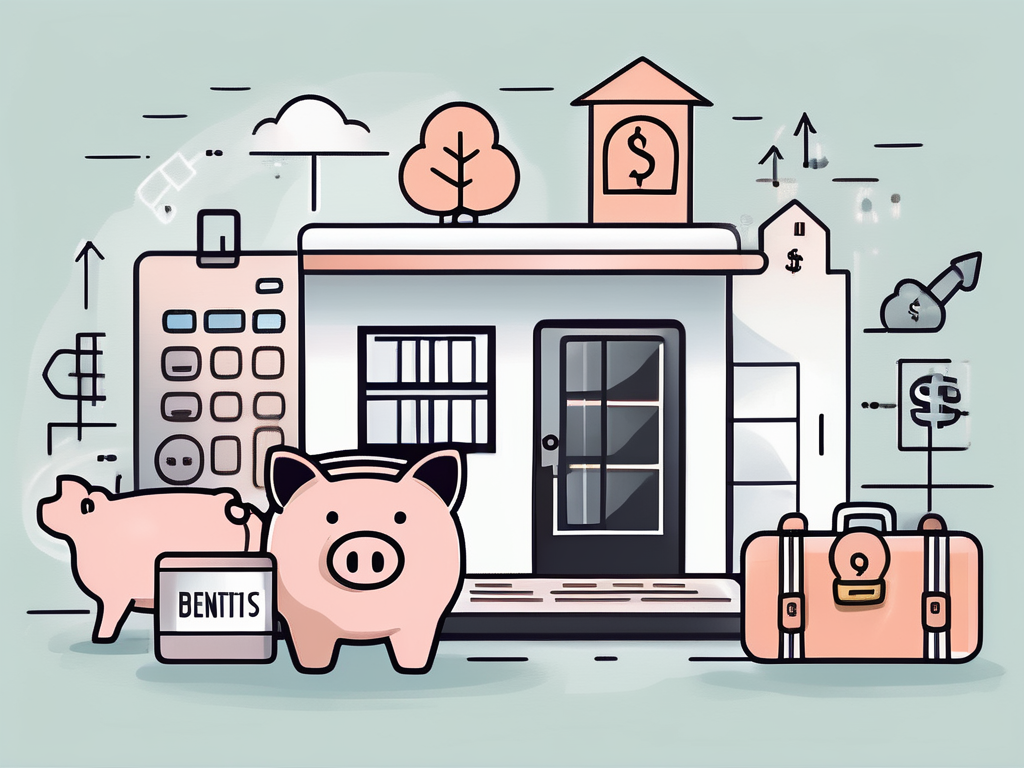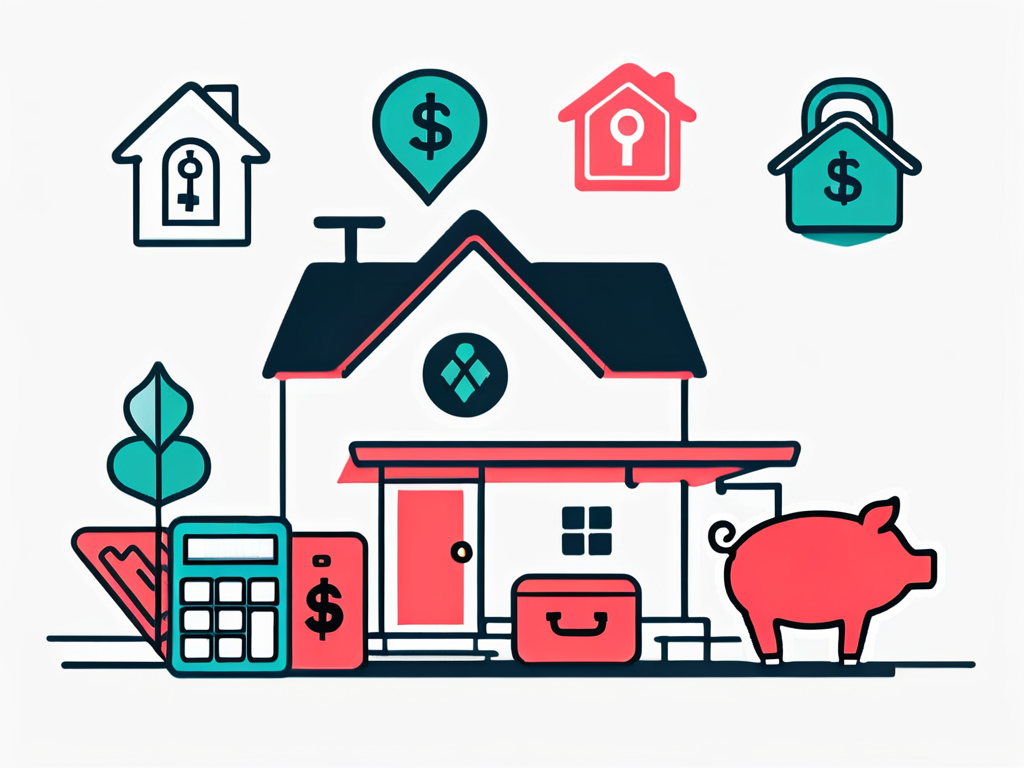Learn how professional tax services can help Airbnb hosts maximize their tax benefits.
rEAD MORE
Renting out your property on Airbnb can be a lucrative business venture, but it also comes with its fair share of tax implications. As an Airbnb host, it's crucial to understand the basics of taxation and avoid common mistakes that could lead to penalties or missed opportunities. To navigate this complex landscape, many hosts turn to professional tax services to maximize their tax benefits. In this article, we'll explore the key tax considerations for Airbnb hosts, the role of tax professionals, and how to select the right tax service for your business.
Before delving into the world of professional tax services, it's essential to understand the basics of tax obligations for Airbnb hosts. When you rent out your property on Airbnb, the income generated is subject to taxation. This includes both the rental income from guests and any additional services or experiences you provide.

One crucial aspect to note is that taxation can vary depending on local laws and regulations. It's essential to familiarize yourself with the specific requirements in your area to avoid any surprises come tax season.
When it comes to reporting your Airbnb income, there are a few options available. Some hosts choose to report their earnings as self-employment income, while others view it as rental income. The classification can depend on factors such as the number of properties you rent out and the level of active involvement in managing your listings.
Regardless of the classification, it's important to keep detailed records of your income and expenses related to your Airbnb business. This includes documenting rental income, maintenance expenses, repairs, and any other costs directly associated with hosting guests.
While it's crucial to report your Airbnb income accurately, many hosts unknowingly make common tax mistakes that can have detrimental repercussions. One common error is failing to report all income earned through Airbnb. Remember, even if you only rent out your property sporadically or for a short period, you still need to report the income.
Another mistake is overlooking deductions and credits that can significantly decrease your taxable income. Many hosts are unaware of the various expenses they can claim, such as cleaning fees, advertising costs, and even mortgage interest payments. These deductions can add up and make a substantial difference to your overall tax burden.
Furthermore, it's important to understand the potential tax implications of renting out a portion of your primary residence on Airbnb. In some cases, if you rent out a room or a portion of your home, you may be eligible for the home office deduction. This deduction allows you to deduct a portion of your home expenses, such as mortgage interest, property taxes, and utilities, based on the percentage of your home used for business purposes.
Additionally, hosts should be aware of the tax implications of renting out their property for more than 14 days in a year. If you rent out your property for more than 14 days and use it for personal purposes for less than 14 days or 10% of the total days rented (whichever is greater), you may be able to deduct expenses such as property taxes, mortgage interest, and insurance premiums. However, if you exceed the 14-day threshold and use the property for personal purposes for more than 14 days or 10% of the total days rented, you may not be able to claim these deductions.
Lastly, it's crucial to stay updated on any changes in tax laws and regulations that may affect Airbnb hosts. Tax laws are constantly evolving, and what may have been deductible in the past may no longer be eligible for deduction. Keeping yourself informed and seeking professional advice when needed can help you navigate the complex world of Airbnb taxation and ensure compliance with the law.
Given the complexity of Airbnb taxation and the potential for costly mistakes, many hosts choose to enlist the help of professional tax services. These services specialize in tax planning and preparation for individuals involved in the sharing economy, ensuring that you take full advantage of the tax benefits available to you.

Tax professionals who specialize in working with Airbnb hosts can provide expert guidance on tax planning strategies tailored to your specific situation. They stay up to date with the latest tax laws and regulations that may affect your business and can help you understand complex concepts such as depreciation and capital gains.
Moreover, these professionals can assist you in navigating the intricacies of reporting your Airbnb income and expenses accurately. They have a deep understanding of the unique challenges faced by hosts, including the need to differentiate between personal and rental use of property, and can help you ensure that you comply with all tax obligations.
By working with tax professionals, you can minimize your tax liability while ensuring that you stay compliant with all tax obligations. They can help you identify deductions and credits you may have overlooked, ensuring you don't miss out on any potential tax savings.
When choosing a tax service for your Airbnb business, it's crucial to select one that understands the unique challenges faced by hosts. Look for professionals with specific experience in handling tax matters for short-term rental properties and who can provide references from satisfied clients.
Consider the level of support and services offered by each tax service. Some firms offer comprehensive packages that include ongoing tax planning, year-round support, and assistance with IRS audits. Others may only provide basic tax preparation services. Assess your needs and priorities to find a tax service that aligns with your goals.
Additionally, it's important to consider the technology and tools used by the tax service. With the increasing digitization of tax processes, it can be beneficial to work with a service that utilizes advanced software and online platforms to streamline the tax preparation and filing process. This can save you time and ensure accuracy in your tax reporting.
Lastly, don't underestimate the value of good communication and a strong working relationship with your tax professional. Look for someone who is responsive, accessible, and willing to take the time to answer your questions and address your concerns. Building a partnership with a reliable tax service can provide you with peace of mind, knowing that your tax matters are in capable hands.
Now that you understand the role of professional tax services, let's dive into the key tax benefits available to Airbnb hosts. By leveraging these benefits, you can significantly reduce your tax burden and maximize your overall profitability.
As an Airbnb host, you have access to a wide range of deductions and credits that can offset your taxable income. These can include deductions for expenses such as advertising and marketing costs, insurance premiums, cleaning fees, and even membership fees for professional organizations related to short-term rentals.
But did you know that there are even more deductions and credits available to you as an Airbnb host? For example, if you provide amenities such as toiletries, snacks, or even bicycles for your guests to use, you may be able to deduct the cost of these items as a business expense. This not only enhances the guest experience but also provides you with additional tax savings.
Additionally, if you use your property as your primary residence but only rent it out occasionally, you may be eligible for the home office deduction. This allows you to deduct a portion of your home expenses, such as utilities and maintenance, based on the percentage of your home used for your Airbnb business.
One of the most significant tax benefits for Airbnb hosts is the ability to claim depreciation on your rental property. Depreciation allows you to deduct the cost of wear and tear on your property over time. This includes not only the building itself but also furniture, appliances, and other assets used for your Airbnb rental.
But here's an interesting twist: did you know that you can also claim depreciation on improvements made to your Airbnb property? This means that if you renovate your kitchen or upgrade your bathroom to enhance the guest experience, you can deduct a portion of the cost as depreciation over time. This not only adds value to your property but also provides you with additional tax benefits.
To take advantage of depreciation and other tax benefits, it's crucial to consult with a tax professional who specializes in short-term rentals. They can help you navigate the complex rules and ensure that you maximize your deductions while remaining compliant with IRS regulations.
If you're an international host or have Airbnb listings in different countries, you'll need to navigate international tax laws and ensure compliance with each jurisdiction. This can be a daunting task, but professional tax services can simplify the process and help you navigate the complexities involved.

When it comes to international tax laws for Airbnb hosts, it's essential to understand that each country has its own set of regulations and requirements. For example, some countries may have specific rules regarding rental income earned from short-term accommodations, while others may impose taxes on non-resident property owners. By staying informed about these differences, you can avoid potential pitfalls and ensure that you are meeting your tax obligations in every location where you operate.
International hosts may have additional tax obligations beyond their home country. Different countries may have varying tax rules, reporting requirements, and withholding obligations. It's crucial to familiarize yourself with the specific regulations in each jurisdiction to avoid potential penalties or legal issues.
Moreover, as an international host, you may also need to consider the implications of tax treaties between countries. These treaties can impact how your income is taxed, the deductions you are eligible for, and whether you are subject to double taxation. Seeking guidance from tax professionals who are well-versed in international tax treaties can help you navigate these complexities and make informed decisions about your tax obligations.
Professional tax services with expertise in international tax matters can assist you in understanding your tax obligations in different countries, avoiding double taxation, and optimizing your overall tax position. They can also help you manage currency exchange issues and ensure compliance with reporting requirements in each jurisdiction.
Additionally, these professionals can provide valuable insights into tax planning strategies that can help you minimize your tax liability while remaining compliant with the law. By leveraging their expertise, you can streamline your tax compliance process and focus on growing your Airbnb business across borders with confidence.
Now that you've gained a deeper understanding of the tax considerations and benefits for Airbnb hosts, let's explore some essential steps to take to ensure a smooth tax filing process.
One of the first steps in preparing for tax season is gathering all the necessary documents. As an Airbnb host, you'll need to collect and organize documents such as 1099-K forms issued by Airbnb, expense receipts, and records of income and expenses related to your rental property. Keeping accurate and well-organized records throughout the year will make this process much more manageable.
When it comes to gathering your 1099-K forms, it's important to note that Airbnb will only issue this form if you had at least 200 transactions and earned more than $20,000 in a calendar year. However, even if you don't meet these thresholds, you are still required to report your rental income on your tax return. So, be sure to keep track of all your rental income and expenses, regardless of whether you receive a 1099-K or not.
Additionally, it's crucial to keep detailed records of your expenses. This includes receipts for any repairs, maintenance, or improvements made to your rental property, as well as any expenses related to hosting, such as cleaning fees or advertising costs. By maintaining thorough records, you'll be well-prepared to accurately report your income and deductions when it's time to file your taxes.
When it comes to actually filing your taxes, there are a few tips that can make the process smoother. First and foremost, start early to avoid last-minute stress and potential mistakes. Review your records, double-check calculations, and ensure that all required forms are filled out accurately.
Another tip is to consider utilizing tax software specifically designed for Airbnb hosts. These platforms are tailored to the unique needs of short-term rental hosts and can simplify the tax filing process by automatically importing your income and expense data from Airbnb and other platforms. They can also help you identify potential deductions and ensure that you're maximizing your tax benefits.
If you're unsure about any aspect of your tax return, consider consulting with a tax professional who can provide guidance and ensure that you're maximizing your tax benefits. They can review your return for potential errors and help you identify additional deductions or credits.
Remember, tax laws and regulations can change, so staying informed is essential. Keep up-to-date with any updates or changes in tax laws that may impact your Airbnb hosting activities. By staying informed and seeking professional assistance when needed, you can navigate the complexities of Airbnb taxation with ease.
In conclusion, as an Airbnb host, understanding the tax implications and maximizing your tax benefits is crucial for optimizing your business's profitability. By utilizing professional tax services, taking advantage of key tax benefits, and staying informed about international tax laws, you can navigate the complexities of Airbnb taxation with ease. So, don't let taxes become a headache – seek professional assistance and make the most of your tax benefits as an Airbnb host!
Copyright © 2025 Vincere Tax| All Rights Reserved
Privacy Policy